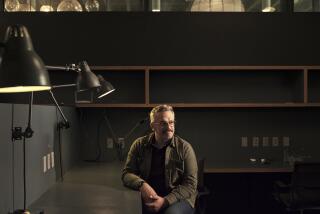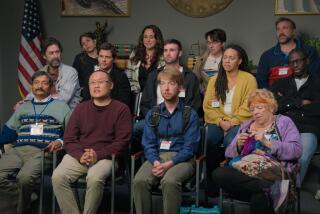The Law Is the Law, but Sometimes Jurors Wish for a Better Answer
She was young, not more than 19, and wore tiger-stripe pedal pushers and red spike heels. She was black and reed-thin, her hair pulled back in an abbreviated ponytail. During recesses she chain-smoked and ate corn chips. Until the judge ordered her not to, she brought her rambunctious toddler with her to the courtroom.
In their criminal complaint, the people of Los Angeles accused this teen-age mother of shoplifting three bottles of children’s cold remedies and a flannel sleeper suit from a supermarket on Crenshaw Boulevard.
She insisted on a jury trial. And we were asked to judge her: 12 mostly middle-class, mostly employed, mostly well-educated citizens doing our duty at the Criminal Courts Building downtown and wishing that we were elsewhere doing something else.
It was an open-and-shut case, the prosecutor said, and indeed it was. Testimony took just a couple of hours. Two security guards swore that they had seen her remove the medicines from their boxes and stuff them and the baby sleeper suit into her purse. The bottles and the sleeper--total value, $20--were entered in evidence, as was a diagram showing the young mother’s route through the store.
The defendant chose not to testify or to call any witnesses. Her lawyer asked us to disbelieve the store detectives, but we couldn’t. She was guilty, we decided after less than two hours of deliberation, beyond a reasonable doubt.
But now, weeks later, I still haven’t got her out of my mind. I remember how she stared at us during the jury-selection process--not a vacant or hostile stare but intense and inquiring. She wanted to know who we were. I recall how little she spoke to her attorney or anyone else. And I can still picture her holding the baby in the hall outside the courtroom, talking to him and feeding him.
A juror, however, isn’t permitted to fill in the blanks. Was the child sick, and was the mother so poor that she was forced to steal medicine and something warm for him to sleep in? Was she playing on our sympathy by bringing the baby to court with her, or was she really all alone? Did she take a $20 shoplifting charge all the way to a jury and then present no defense in the belief that 12 ordinary people would see her situation and let her off? Good questions, we jurors admitted, but not relevant. Stealing is stealing. The law is the law. We had no choice but to convict her. And maybe, someone remarked, she will learn her lesson. If your children do something wrong, one father of three noted, you correct them.
I agreed that we had no choice. Our duty was clear: We could judge her only by the evidence; emotion and sympathy must be left at the jury-room door. But I was troubled nonetheless. During the trial my eyes kept wandering from the three bottles of baby medicine and the sleeper suit to the face of the defendant. She stared back. Look at me, she was saying--no money, no prospects, a sick child to care for.
When the verdict was returned, she looked at us again, then she cried. You’re really sending me to jail for stealing medicine for my baby?
Yes, the jury had responded, it’s what we had to do. I wished that we had a better answer.
More to Read
Sign up for Essential California
The most important California stories and recommendations in your inbox every morning.
You may occasionally receive promotional content from the Los Angeles Times.









